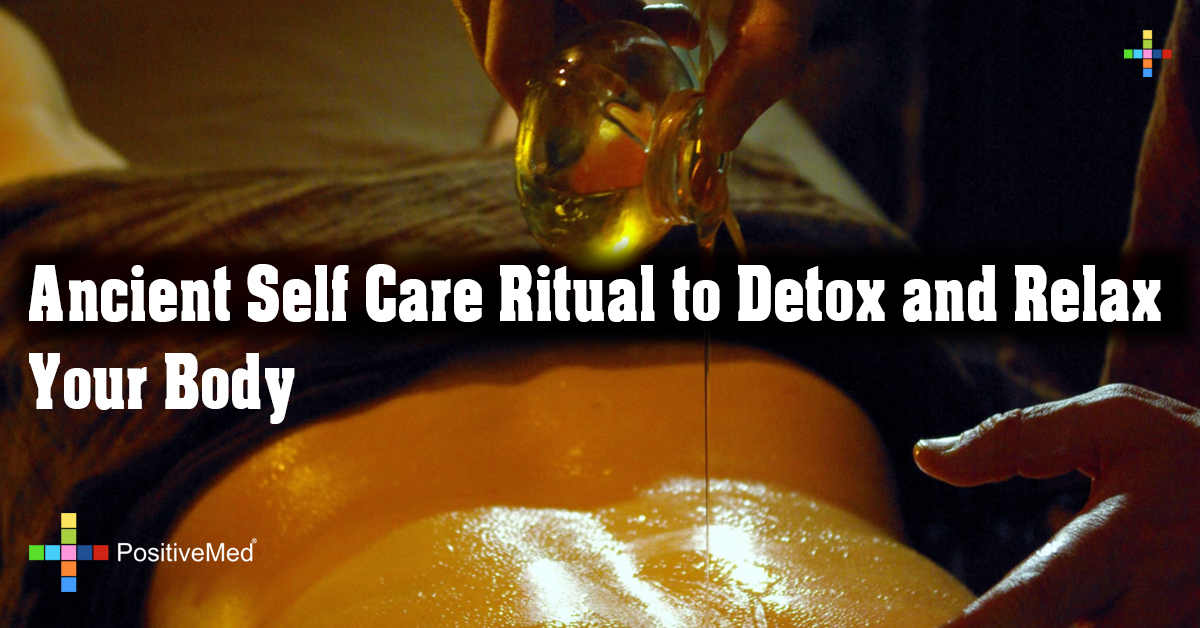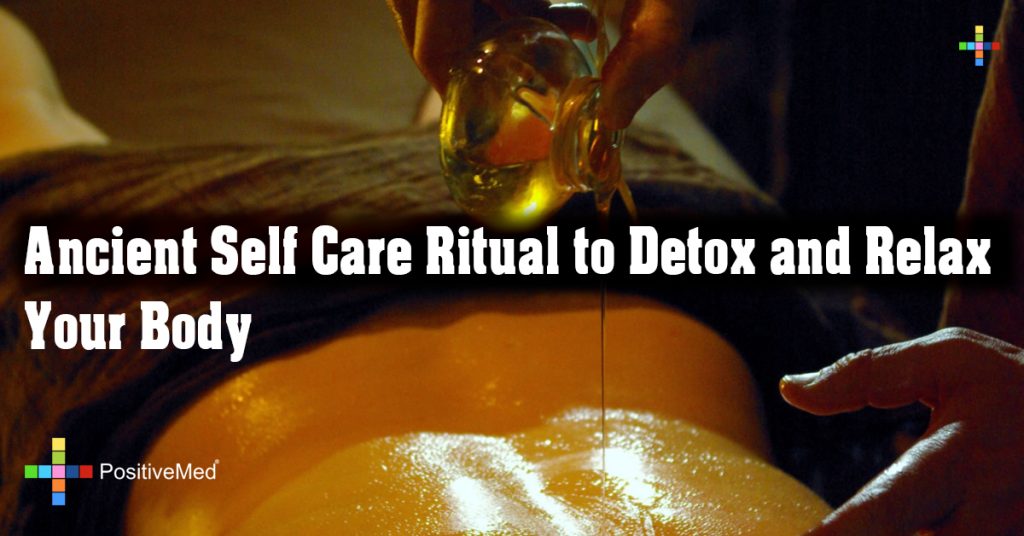
Ancient Self Care Ritual to Detox and Relax Your Body
[nextpage title=”…”]
Tending to one’s own wellbeing is essential, regardless of lifestyle or age. Abyanga is the Ayurvedic practice of self-love, the anointing of one’s self from head to toe with warm oil. The Sanskrit word ‘Sneha’ can be translated as both “oil” and “love,” with the the effects of Abhyanga similar to those of one who is literally saturated with love. Those who practice the self care ritual of Abhyanga note a deep feeling of stability and nurturing calm.

According to Sandhiya Ramaswamy, Abyanga – is the self care ritual that “restores the balance of the doshas and enhances well-being and longevity. Regular Abyanga is especially grounding and relaxing for Vata dosha imbalances, but everyone can benefit from this practice.”
Abyanga is a relatively simple ritual to perform, either daily or a few times a week. Carefully warm your oil of choice (sesame oil is the traditional preference, but sunflower and almond oil also work well), making sure not to overheat the contents. The oil should be pleasantly warm but not scalding.
Sit or stand in a warm, comfortable space and slowly apply the oil first to the crown of your head (adhipati marma). Gently work out from there using circular strokes, taking a few mintues to massage the entire scalp, an area believed in Ayurveda to be the central source of vital energy.
RELATED ARTICLE: The Ayurvedic Truth About Coffee
Massage your forehead, temples, cheeks, and jaw using upward, circular motions, and take care to massage your ears and lobes, also believed to be essential mara points.
Use long strokes to massage your arms and legs, and circular strokes for the elbows and knees. Massage the abdomen and chest in firm, clockwise motions, always massaging up in the direction of the heart. Massage your abdomen following the path of the large intestine: upward right, then across, then down to the left.
[/nextpage] [nextpage title=”…”]
Complete the self care ritual by massaging your feet for a few minutes. Feet contain powerful marma points in the Ayurvedic practice, with nerves believed to directly correlate to vital organs.
It’s recommended that you sit with the oil for at least 5-15 minutes, allowing it to penetrate and absord into the body. You can use this time to practicing your breathing exercises, meditate, or simply relax.
When ready, wash the oil off in a warm bath or shower, being mindful not to overscrub with any harsh soaps or washes. Be gentle when drying off, using the towel to blot rather than rub.
The ultimate benefits of Abhyanga are innumerable, with a few highlights including:
*Increased stamina
*Joint lubrication and relief from pain
*Firmness of limbs
*Increase in muscle tone
*Strength and vigor to the body dhatus (tissues)
*Increased circulation
*Internal organ stimulation
*Calmness of the nerves
*Improvement of sleep
*Enhanced vision
*Improvement of hair and scalp condition
*Elimination of fine lines and wrinkles on the skin, with overall improved smoothness
*Overall body detoxification and improvement of the lymph system
Practicing self care through the ancient ritual of Abhyanga is a safe and effective way to incorporate love and attentiveness to inner and outer wellbeing, with many reporting an overall improvment in their health and daily life. “This self-massage technique isn’t exactly muscular, but it does work on a cellular level,” writes Shiva Rose for MindBodyGreen. “It nourishes the body, spirit, and mind while also detoxify the body, increasing circulation, enhancing relaxation, and restoring vigor and stamina to the body.”
[/nextpage]






